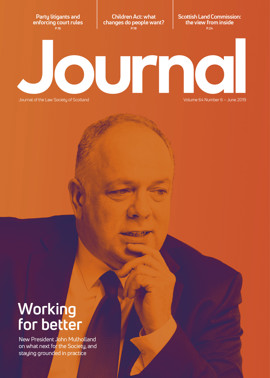Book reviews

Employment Law and the Gig Economy
Nigel Mackay and Annie Powell
PUBLISHER: LAW BRIEF PUBLISHING
ISBN: 978-1911035879
PRICE: £49.99
This slender volume is an excellent example of the value of brevity. Published in late 2018 it reflects the law as it was on 18 October 2018. It was written before the Court of Appeal’s judgment in Uber BV v Aslam [2018] EWCA Civ 2748, which held that Uber drivers were workers for employment law purposes, despite Uber’s best efforts to convince the court that Uber was no more than an enabling technological platform putting would-be travellers in contact with mini-cab drivers in (in this particular case) London.
Mackay and Powell have produced a useful guide to the key issues when determining whether gig economy workers are employees, workers, or genuinely independent subcontractors. They highlight the apparent contractual relationship set out in writing, whether the worker has an unfettered right to send a substitute, the mutual obligation test, and the need to look beyond the apparent arrangements to how they work in practice.
In the current Uber BV case the Court of Appeal held by a majority that the drivers were workers and thus entitled to paid leave, rest breaks, to be paid the national minimum wage and to protection from discrimination. In a dissenting judgment Lord Underhill held that the written contractual agreements between the drivers and Uber reflected what happened in practice, and it was not open to the courts to disregard the written agreement simply because of the unequal bargaining power of the parties. It remains to be seen what the Supreme Court makes of it when it hears Uber’s appeal later this year, or even next.
Lord Underhill was referring to an earlier gig economy case in which the “employer” obliged workers to sign contractual documentation which did not reflect the reality of the working relationship, and in that instance the Supreme Court held that an employment tribunal at first instance could determine the legal nature of the relationship irrespective of the written materials.
It is a fine point, but it would be surprising if the Supreme Court was to decide that Uber was no more than a technology platform collecting commissions from an estimated 70,000 Uber drivers in the UK.
These issues are dealt with in a general, and extremely useful and concise manner in Mackay and Powell’s book, which goes on to consider whether gig workers might in certain circumstances be employees working under umbrella contracts of employment, or casual employees who will usually find it very difficult to acquire the two years’ service needed to gain full employment protection.
Into this speculative mix must be added the continuing uncertainty over the UK’s membership of the EU.
This book will be a useful resource for anyone practising employment law. It is currently only available in hard copy.
Perspectives
Features
Briefings
In practice
- Tradecraft – one solicitor's experience
- Dear employer...
- Team building – for the Foundation?
- Accredited paralegal practice area highlight: conveyancing
- Accredited Paralegal Committee profile
- What's new for paralegals?
- Ask Ash
- Managing the risk of workplace stress
- Appreciation: Iain Alexander Macmillan
- Revealed – by your AML certificates






